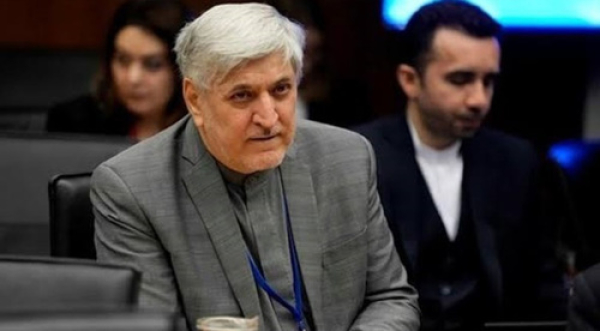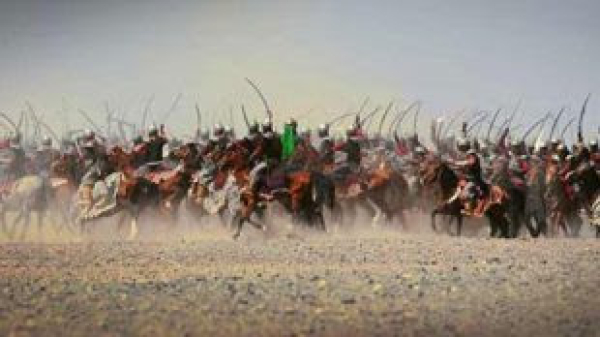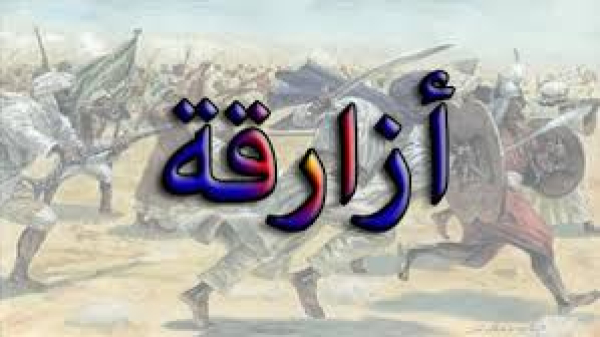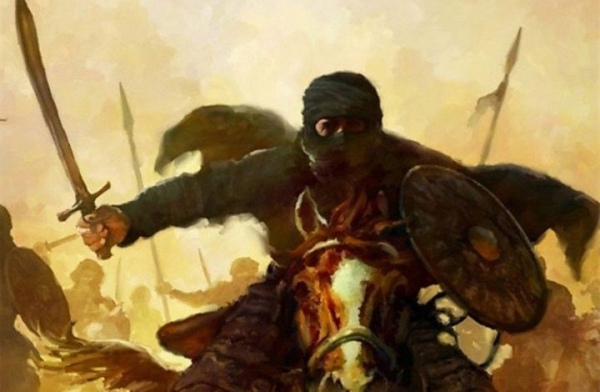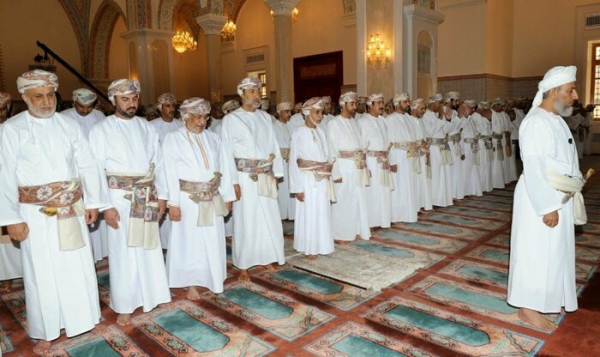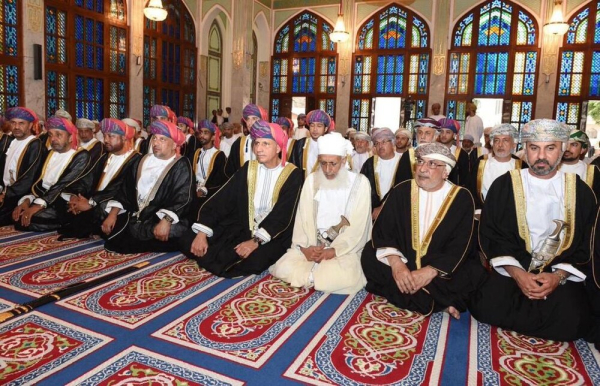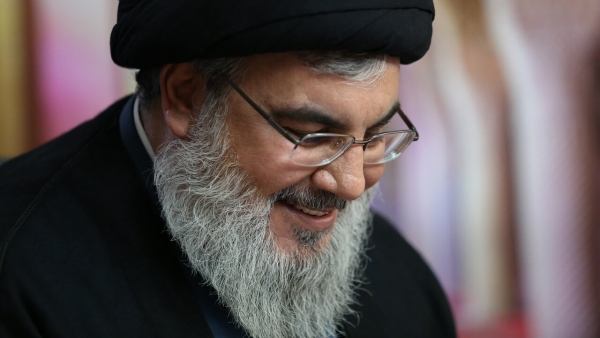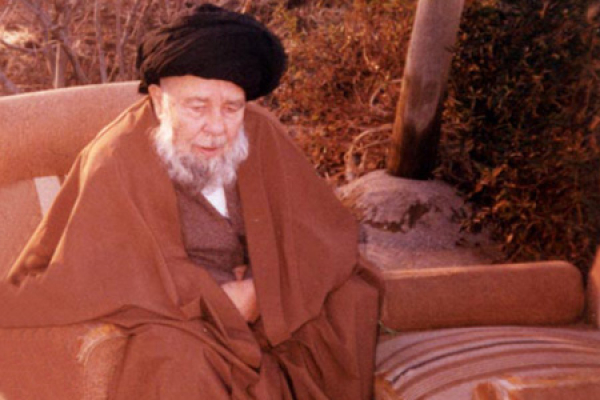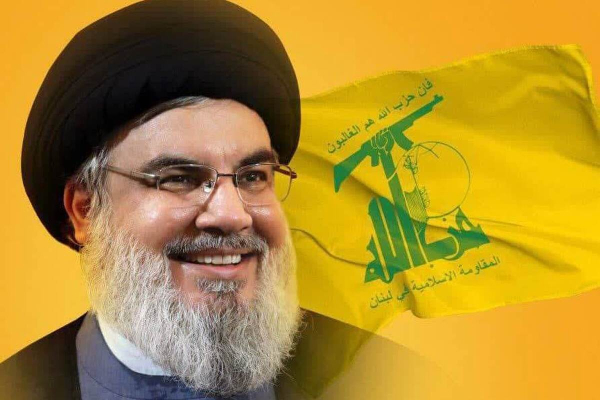zarezadeh
US says prepared ‘to go to war’ with China
The Pentagon chief has declared that the United States was "prepared" to go to war with China following Beijing's assertion that it would stand up to whatever further hostile measures that Washington could take against it.
"We're prepared," Pete Hegseth said during an interview on Fox News' Fox & Friends on Wednesday.
He stressed the importance of the US’s military readiness, and alleged, "Those who long for peace must prepare for war."
Hegseth claimed the United States needed to strengthen its military to engage in potential conflicts, citing China's rapid defense advancements, which he framed as a threat, as well as, what he called, Beijing’s aspirations to challenge Washington’s global standing.
"We need the defense spending, the capabilities, the weapons, and the posture in the Indo-Pacific, which is something we're very much focused on," he added.
The comments came after China expressed its readiness to counter any form of conflict initiated by the US, including a trade or tariff war.
The escalation followed Trump's decision to double tariffs on Chinese imports from 10% to 20%, a move that the American administration tried to justify as a response to China's alleged inadequate efforts to control the flow of fentanyl into the United States.
In retaliation, China announced its own tariff increases, imposing 10% to 15% hikes on a range of American agricultural and food products.
Additionally, China placed 25 US firms under export and investment restrictions, citing national security concerns.
Announcing Beijing’s readiness to respond to Washington’s hostile attitude earlier on Wednesday, Chinese foreign ministry spokesperson Lin Jian condemned the latter’s aggressive actions, stating that the fentanyl issue was a "flimsy excuse" for raising tariffs on Chinese imports.
Lin emphasized that China's countermeasures were "fully legitimate and necessary," and denounced the US for being responsible for its own fentanyl crisis.
He then warned that China would fight "till the end" if the US persisted in waging a trade war.
The US-initiated trade dispute has, meanwhile, raised concerns about potential impacts on global markets.
Brushing off tensions with China at the same time as threatening military engagement with the country, however, Hegseth claimed that Trump maintained a "great relationship" with Chinese President Xi Jinping.
Press TV’s website
Iran’s IAEA envoy: West’s ‘ineffective’ pressure campaign to backfire
The Western strategy of exerting pressure on Tehran to force its unilateral compliance with nuclear obligations is “not only ineffective but also counterproductive,” Iran’s envoy to the International Atomic Energy Agency (IAEA) has warned.
Speaking at a meeting of the IAEA Board of Governors, Mohsen Naziri Asl addressed Western-sponsored censure resolutions against Tehran and the continued imposition of sanctions over unsubstantiated claims that Iran seeks nuclear weapons.
He underscored the failure of Western parties to uphold their commitments under the nuclear deal, known as the JCPOA, a failure that began with the US withdrawal from the accord in 2018 and was further exacerbated by the inability of the remaining European signatories – France, Germany, and Britain – to compensate for Washington’s exit.
Naziri Asl said Iran’s decision to scale back some of its commitments was a direct response to these violations, in line with Articles 26 and 36 of the JCPOA, which grant Iran the right to take remedial action if other parties fail to uphold their obligations.
He reiterated that Iran’s remedial measures under the nuclear agreement will be abandoned only if sanctions by the United States, the European Union, and three European parties to the accord are lifted in a manner that is both effective and verifiable.
Experience has shown that the policy of pressure pursued by certain parties is not only ineffective but also counterproductive.”
West is in no position to activate snapback
The Iranian envoy also dismissed any attempts by the European parties to invoke the JCPOA’s snapback mechanism.
Since France, Germany, and Britain – known as the E3 – have themselves violated UN Security Council Resolution 2231 and the JCPOA, they lack the legitimacy to trigger the dispute resolution mechanism in response to Iran’s remedial actions, the envoy argued.
“The E3 cannot pursue the same legal course against Iran, as such an action contradicts both the purpose of the dispute resolution mechanism within the JCPOA and the fundamental principles of international law among civilized nations.”
He warned against allowing years of international diplomacy and investment in the agreement to be undermined.
“It is our responsibility to preserve this achievement. We call on all member states to fully implement the provisions of Resolution 2231, including its specified timeline.”
Responding to Western accusations that Iran seeks nuclear weapons, the envoy reaffirmed that Iran firmly rejects weapons of mass destruction (WMD) based on its ideological and strategic principles, considering them outdated, inhumane, and a threat to global peace and security.
Termination Day is the date when the remaining UN sanctions on Iran are scheduled to be lifted, marking a final step in the JCPOA’s implementation.
Originally set for October 2025, this milestone signifies the official conclusion of restrictions on Iran’s nuclear program under the deal.
However, European powers are exploring ways to trigger the snapback mechanism, using Iran’s remedial measures as a pretext.
This mechanism, which is embedded in Resolution 2231, allows any signatory to re-impose UN sanctions if Iran is found to be in “significant non-compliance.”
In 2020, the Trump administration attempted to activate the snapback despite having withdrawn from the JCPOA. The move was widely rejected by the international community, notably the UN Security Council.
Press TV’s website
Common beliefs of the Khawarij
The beliefs of the Khawarij can be divided into two general categories:
a) Issues related to faith and disbelief. All Khawarij considered the perpetrator of a major sin to be a disbeliever. This issue of belief has very important theological requirements that were usually explained and interpreted in later times. These requirements are:
1 - Action is part of faith and is included in faith.
2 - There is no status between disbelief and faith. Therefore, every human being is either a believer or a disbeliever.
3 - Faith has different degrees, and the degrees of faith depend on the nature of the actions. For example, the faith of a person who abandons all obligatory and all abominable acts is higher than the faith of a person who only acts on obligatory acts.
4 - Since action is part of faith, then any action that contradicts faith causes one to leave the circle of faith. According to the Khawarij, a major sin is an action that contradicts faith and causes disbelief.
5 - Since the perpetrator of a major crime is an infidel, his punishment in the hereafter is eternal and he will remain in the eternal fire.
b) Issues that are not directly related to faith and disbelief. The most important of these opinions are:
1 - Enjoining what is right and forbidding what is wrong is obligatory in all degrees, even if it leads to fighting; they did not recognize any restrictions or conditions for killing and fighting those they consider infidels.
2 - It is obligatory to go out and fight with an unjust ruler.
3 - It is forbidden to establish and accept the judgment of other than God.
4 - If the existence of an Imam is necessary, he is appointed by the free choice of all Muslims, and his Imamate will continue as long as he acts according to justice and principle and does not commit any error.
5 - Imamate and caliphate are also permissible for people other than Quraysh.
6 - They consider Imam Ali (peace be upon him), Uthman, Talha, Zubair, Aisha, and all the caliphs of the Umayyads and Abbasids to be infidels and consider it obligatory to disown them.
Azarqa
This group is the followers of Abu Rashid Nafi' ibn al-Azraq (d. 65 AH). Nafi was the first to create divisions and splits among the Khawarij by inventing certain specific views. Az-Arqa played a greater role than others in transforming the Khawarij into a religious and theological group, rather than a purely political one.
At the same time, Az-Arqa were stronger and more influential than other Khawarij sects in terms of politics and military power, as well as the number of followers and troops. When Abdullah ibn al-Zubayr had revolted and had gained control over areas including parts of Iran, Nafi' moved from Basra to Ahvaz and captured Ahvaz, Fars, Kerman, and the surrounding areas. Under Nafi's leadership, they fought for a long time with the armies of Ibn al-Zubayr and the Umayyads until Ibn al-Zubayr sent one of his commanders, Muhallab ibn Abi Safra, with twenty thousand men from Basra to fight them. Muhallab fought against Azraqa for nineteen years, sometimes on the side of Ibn Zubair and sometimes on the side of Hajjaj, during the reign of Abdul Malik ibn Marwan. In one of the battles, he killed Nafi and then, by creating a division in the Azraqa army, he completely destroyed them.
Gradually, beliefs emerged in this group that sometimes tended towards harshness and extremism.
The main beliefs of this group are:
1- Azraqa considered its opponents to be polytheists and infidels, while the early Kharijites considered them to be only infidels.
2- The main Khawarij, i.e. those Kharijites who did not fight with Azraqa, are infidels and polytheists.
3- The children of the polytheists (opponents of Azraqa) are also polytheists.
4- It is permissible to kill the polytheists, i.e. the opponents of Azraqa and their women and children.
5- All polytheists, including children, will remain in the fire of hell forever.
6- Committing any sin, whether major or minor, leads to disbelief and polytheism.
7- God can choose someone as a prophet who was a disbeliever before prophethood or will become a disbeliever after prophethood.
8- Taqiyyah is not permissible in speech or action.
Najdiyyah
This sect is considered to be the followers of Najda ibn Amir Hanafi (d. 69 AH). Initially, Najda ibn Amir with his army in Yamamah intended to join the Khawarij army of Basra led by Nafi ibn Azraq. In the meantime, Nafi expressed his own views and considered the Khawarij followers as infidels and polytheists like other Muslims and considered it permissible to kill them and their women and children. After the incident, a group of Nafi's companions separated from him and headed towards Yamamah. Ibn Amir rushed to welcome them and learned of Nafi's new views and opposed him. Then, a splinter group from Azraqa pledged allegiance to Najda ibn Amir along with the Khawarij of Yamamah, and thus the Najdat were born. This group is also known as the A'zari, because their belief is that they consider ignorance of the branches of religion to be an excuse. Overall, this group has moderate beliefs and has distanced itself from the extremism of the Khawarij to some extent. The views of this sect:
1 - If someone commits a minor sin and insists on it and repeats it, he is a polytheist, but if someone commits major sins such as adultery, theft, and drinking alcohol and does not insist on it, he is a Muslim. Therefore, only sins that a person insists on are grounds for disbelief and gratitude.
2 - The people and society do not need a leader and an Imam, and they only need to observe justice, and if this work stops without the presence of an Imam, then the appointment of an Imam is necessary.
3 - Taqiyyah in speech and action is permissible.
4 - Killing the children of opponents is not permissible.
5 - The Khawarij are excused.
The Najdat soon suffered from internal divisions, and the leader of one of these splinter groups, Najdat ibn Amir, was killed.
Safariyya
The followers of Ziyad ibn al-Asfar are called. Ash'ari believes that the main sects of the Khawarij are the four sects of Arqa, Ibadi, Najdi and Safariyya, and the rest of the sects are offshoots of Safariyya. This group does not consider it permissible to kill the children and women of their opponents. Three theories emerged among this group regarding the sinner being an infidel and a polytheist, which led to the emergence of three sub-sects. Some of them, like Arqa, consider committing any sin to be a sin of disbelief and polytheism. Others believe that if someone commits a sin such as adultery or theft that has a legal penalty, that person is called an adulterer or a thief, not an infidel; an infidel is only someone who commits a sin such as leaving the prayer that does not have a legal penalty. Others consider a person who has been sentenced to a legal penalty by a religious authority as an infidel.
Ibadi
The founder of this sect is Abdullah ibn Ibad (d. 86 AH). Some believe that Abdullah was the political leader of this group and that the scientific and religious leadership was under the responsibility of Jabir ibn Zayd al-Omani. Abdullah initially accompanied Nafi ibn Azraq (the founder of the Azraq sect), but after learning of his extremist views, he separated from him. Abdullah left during the time of Marwan ibn Muhammad and Marwan's army fought him in a place called Tabala. Jabir ibn Zayd is one of the leaders of the Ibadi sect and is from the same tribe. Therefore, Jabir's preaching was effective in Oman and many people of that land accepted the Ibadi sect. Apparently, at the same time as the dissolution of the Umayyad government in 132 AH, Julandi ibn Mas'ud succeeded in establishing the Ibadi government in Oman. However, soon after, the Abbasid Caliph Saffah sent an army to Oman and destroyed the Julandi government in 134 AH. After a while, the Ibadis regained control of Oman, and this situation continued for about a hundred years until disagreements arose among the Ibadis, after which an army led by the Abbasid Caliphate invaded Oman and once again overthrew the Ibadis, but the majority of the people remained Ibadis.
The Ibadis are the most moderate sect of the Khawarij and the only remaining sect of them that is present today in Oman and parts of North Africa. The current royal family of Oman is also Ibadis and is from the same tribe.
Al-Shahristani describes the most important Ibadis beliefs regarding the issue of faith and disbelief as follows:
1 - The perpetrators of major sins are not believers; rather, they are disbelievers.
2 - The disbelief of the perpetrators of major sins is a form of disbelief in blessings, not disbelief in the nation or religion.
3 - The perpetrators of major sins are monotheists, not polytheists, because they accept the One God.
4 - Marriage and inheritance with major perpetrators is permissible, and killing them is not permissible, unless there is a war involved.
Until we meet again: A letter to the ‘master of resistance’ Sayyed Hassan Nasrallah
By Roya Pour Bagher
I always regarded my mother’s homeland as a tiny speck on the map, never giving it much weight, geographically speaking. However, that changed on February 23, 2025.
It was the day I felt that all of existence – not just 1.4 million – had flocked to Beirut, Lebanon. Is it not because you spent your entire life striving in the path of truth and justice?
My beloved Sayyed, even your sworn enemies and adversaries came to Beirut on that day. They arrived with their fighter jets, hovering above the heads of your heartbroken mourners.
The other day, I was reading the verse, “And wherever you are, turn your faces towards the Holy Mosque.” I thought of your funeral, which struck me as strange.
I never had any picture in my mind when I came across that verse before. I simply took it as, “God is saying to turn towards the Qibla (prayer direction).”
But after witnessing the encounter between your admirers and the enemy during your historic funeral, I understood another meaning of that verse.
Your “most honorable people” did not even look at the enemy, except to shout, “Death to Israel.” Their eyes were fixed on your coffin as it was moving through the sea of people inside the jam-packed stadium. So, “wherever they are, their face is towards Allah’s path.”
The old, the young, the newborn, the wheelchair-bound… Lebanese from every corner of the country, from every walk of life, traveled to Beirut to bid you tearful farewell.
Some who came by car from the north and east had to abandon their vehicles due to heavy snow, continuing their journey on foot. In other words, they walked a distance that would take hours by car. All of it for you. All of it for their unbreakable pledge of allegiance to your cause.
I never thought you would be the reason I would witness Arbaeen so early this year.
Speaking of Arbaeen, Imam Hussain (AS) sent his lovers from Iraq to pay tribute. In a proud and worthy display at your martyrdom site, they pounded their chests and mourned your loss.
Each person at the funeral came as a representative of their country and the people who wished to pay their respects in person but couldn’t for many reasons.
As the crowd gathered, their voices rose, echoing sentiments that pierced the heart:
“Why should I live after you?”
“Sayyed is in my heart.”
“You broke our backs, Sayyed.”
“It’s cold, but we’re not shivering… is it the warmth of your presence?”
These words, raw and unfiltered, captured the depth of their grief and devotion. But, Sayyed, do you know who I worried about the most that day?
The ones who carried you on your final walk. And what a weight they bore – the heaviest for the Lebanese who adored you, admired you, looked up to you.
Some cried, some wailed… but one man, in particular, stood out to me. He seemed to have lost even the ability to express his emotions – your loyal bodyguard, Abu Ali.
Watching him, I couldn’t help but feel pain on his behalf – the pain of not having died protecting you. He could have chosen to stay hidden, to grieve in private, away from the eyes of the world.
Yet, he didn’t. He stood there, catching the objects people threw toward your coffin to be blessed by it. He came and carried out his duty. He did not step back to mourn, even though he had every right to.
I saw a unique and unwavering loyalty in Abu Ali, and I know you have not forgotten him.
The unveiling of your coffin felt like the unveiling of a mountain – monumental, overwhelming, and surreal. It was as though I were watching a scene from a film, detached from reality. Even then, we could not see your face.
For most of our lives, we never saw you in person. Our connection was mediated by screens, and on that day, the coffin became yet another barrier separating us from you.
Sayyed, we never had the chance to meet you face to face. Yet, there is a strange beauty in that absence. You taught us to believe in what we cannot see. Is that not the essence of faith? Did you not deepen our trust in our savior, our final hope, Imam Mahdi, may God hasten his reappearance?
You were our father, our well-wisher, our guardian, yet we never knew your presence. Now, your grave is the closest we will ever come to touching the tangible reality of you.
I am not ungrateful. This is a connection I will hold sacred for the rest of my life. But, Sayyed, in my eyes, you are an ‘anonymous martyr’ in your own right. I never saw your face, never came across you in person. You remain eternally unseen, yet profoundly felt.
Our ‘anonymous martyrs’ lived among the people, praying that their graves would not become objects of veneration. Yet, you spent much of your life in concealment, only to be discovered after your martyrdom.
It is a paradox I cannot fully unravel, a mystery that lingers, as enigmatic as it is profound.
Your existence was one of the greatest divine lessons, yet another in the long list of Wilayah (guardianship) lessons given by Allah that many still overlook. But your people did not.
"We remain true to our pledge," is the greatest proof of that. The covenant remains there.
You taught us to obey the true leaders of justice and truth. Indeed, love is not enough. Our slogan is that of loyalty, not just love. To remain steadfast in the cause you championed demands both discipline and action, a truth your people have embodied with remarkable beauty.
They came to renew their pledge to you, not out of obligation, but out of profound devotion. And when the time came to accept the one who followed you, they did so without hesitation, without question. It is a testament to the strength of your legacy and the depth of their belief.
Your enemies never missed an opportunity to accuse you of sectarianism, yet each time, you dismissed and debunked those accusations without even trying.
Even on the day of your funeral, the irony was undeniable. You, the “sectarian man,” had attracted people from all religious, racial, ethnic, and tribal backgrounds. The atheist, Sunni Muslim, Shia Muslim, Zaidi Muslim, Christian, and even the Jews participated.
They came with honor and left with a prominent piece of your character – fearlessness.
The same voices that rose in solidarity with Palestine during the horrors of Israeli genocide were present at your funeral, speaking of your life and legacy. They knew you as the leader who died for Palestine, for al-Quds, for the cause we all hold dear.
But to define you solely as the man who died for Palestine feels too narrow, too incomplete. I cannot confine your legacy to a single struggle. To me, you were more than that.
I know you as the man who died for Haqq (truth) to reach God. You fought for truth in Palestine, in Syria, and in Lebanon. Everything you did, you did because it was the right thing to do.
Sayyed, you were martyred on the path of truth, and one day, by the will of God, you will pray in the path of truth at Al-Aqsa Mosque.
You said it was your personal belief. Now, I carry that belief for you here in this dunya – this world – as legions of your lovers and admirers do.
If I once wanted Palestine liberated for the sake of justice, I now want it liberated so that the man who gave his everything for justice can pray at Al-Aqsa Mosque.
Roya Pour Bagher is a Tehran-based writer.
Press TV’s website
Advice from Allah Sayyid Abdul Karim Razavi Kashmiri about the month of Ramadan
Ayatollah Seyyed Abdul Karim Razavi Kashmiri was a Shiite mystic and a student of Seyyed Ali Agha Qazi Tabatabaei and Seyyed Hashem Haddad. “Sharh Kifayat al-Usul” is one of his works. He died in 1378 and was buried in the shrine of Hazrat Masoumeh (PBUH).
This virtuous scholar had interesting advice for making the most of the month of Ramadan, nine of which are as follows:
1- “Don’t be quantitative; be qualitative!” Don’t seek to finish the verses and supplications; rather, seek to digest them! Chew the small amount of food well so that it becomes part of your soul. Our biggest problem is the narrow-minded approach to religion and Sharia. Think about how much you have done in previous years with the desire to recite a lot, where have you come to?! At the beginning of Ramadan, make sure to make the intention to fast only for Allah; only Allah! Perform the rituals of fasting as much as you have the energy to do so.
2- Contemplation: Be sure to dedicate a few minutes of your mysterious fasting hours to the highest form of worship, and that is nothing but “contemplation”! Be alone with yourself and your God. Think especially about the type of relationship between the Almighty God and you; hopefully, the doors of knowledge will open to you.
3_ One of the most important states of servitude, especially in the month of Ramadan, is a state that the Holy Prophet strongly recommended, and that is “long prostration.” Only God and the saints of God know what rain of mercy and blessings from the world of Lordship will fall upon you during the prostration of servitude. Be sure to have one long prostration during the day.
4- Break your fast at home as much as possible; do not even break your fast in mosques. Let the blessing of breaking your fast and the answered prayer of breaking your fast befall your family and home. In the meantime, do Dalal during Iftar! “Dalal means pampering.” Pamper yourself during Iftar for God! Because you fasted for Him and His Majesty is a generous shepherd.
Bring the first bite close to your mouth, but do not eat! Pray; that is, tell God: “If you fulfill my need, I will break my fast!” This state works wonders!
5- The secret to staying in the divine feast of Ramadan is the alchemy of “good character”. Treat your children, relatives and friends with the elixir of good character and kindness. The moment you are angry and resentful is the moment you are expelled from this divine feast!
6- The dream ship of Ramadan rides the waves of the sea of “tears” to the shore of salvation! Ask God Almighty in this month, especially for the magical dawn of those tears and cries.
7- From the beginning of Ramadan, your goal should be “Laylat al-Qadr”, which is the soul of Ramadan. There is a lot to say about this; however, “it is not good for the secret to be revealed”, let us just try to make the Night of Qadr happen in us, not in the month!
8- This month is our month of "Rabi' al-Quran". In this Quranic spring, choose a verse every day and recite it alternately and meditate on it until iftar. Hopefully, the verse will reveal itself to you at the moment of iftar!
9- Throughout the month of Ramadan, your attention to the true fasting person and the perfect human being, the Imam of the Afternoon, should not be interrupted...
‘US complicity’: Hezbollah says Israel used American intel, missiles to assassinate Nasrallah
A senior Hezbollah official says the United States was directly involved in the aggression against Lebanon and Sayyed Hassan Nasrallah’s assassination, stressing that Washington has ramped up intelligence operations against Hezbollah tenfold over the past 25 years but the resistance movement remain resolute and remains capable of striking occupiers.
Head of Hezbollah’s Resources and Borders File, Nawaf al-Moussawi, made the remarks in an interview with Lebanon’s al-Mayadeen television network on Monday, emphasizing that the US had a role in the decision and execution of the assassination of Nasrallah, Hezbollah’s secretary general who was killed in an Israeli missile attack in Beirut on September 27 last year.
Moussawi stressed that the types of missiles used to strike the headquarters of Nasrallah in Beirut’s Dahiyeh neighborhood “were not part of Israel’s arsenal and were brought in specifically for this targeted attack.”
The Hezbollah official also noted that the US intelligence operations against Hezbollah since 2000 have increased tenfold compared to those of Israel, stressing that American intelligence program “serves Israeli interests.”
Elsewhere in his remarks, Moussawi said that Hezbollah had “suffered heavy blows” in its confrontation with the Tel Aviv regime, but stressed that the movement “is not over, nor is the Resistance front.”
The Resistance inflicted significant losses on the Israeli occupation “at the height of the war” and scored achievements during it, he emphasized, citing, as an example, the Caesarea operation, in which a Hezbollah drone reached the residence of Israeli prime minister Benjamin Netanyahu.
Hezbollah “is capable of delivering strikes to the Israeli occupation if it compensates for its shortcomings,” Moussawi stressed, highlighting that “the amount of shortcomings and gaps is significant.”
The Hezbollah official noted that while the occupying entity claims that it has achieved “success,” there is no evidence for its so-called achievements against the movement.
Moussawi also said that Hezbollah is currently conducting an internal investigation into all security and military events that took place during Israel’s latest war on Lebanon.
Since the onset of the escalation in October 2023, around 4,000 Lebanese, many of them civilians have been killed, and over one million people displaced.
The Israeli escalation featured assassination of several high-ranking Hezbollah leaders, including Nasrallah, and Sayyed Hashem Safieddine, who had been Hezbollah’s Executive Council chief, as well as commanders and fighters.
Nasrallah and Sefieddine were laid to rest in the capital Beirut on February 23 and 24, respectively, amid myriads of mourning Lebanese and foreign supporters.
The Lebanese resistance movement, however, stood up to the aggression with all at its disposal, conducting numerous retaliatory strikes against sensitive and strategic Israeli targets.
Hezbollah has vowed to continue its resistance against Israeli occupation and aggression, despite the losses, which, the movement asserts, only further reinvigorate its resolve to fend off Israeli atrocities.
Press TV’s website

